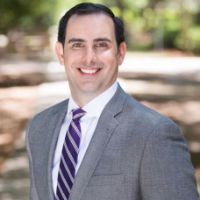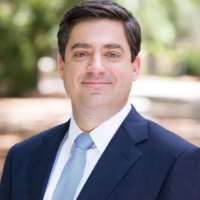 Berkeley County, SC RICO Act Lawyers
Berkeley County, SC RICO Act Lawyers
Sponsored Law Firm
-
 x
x

Click For More Info:
-
The Law Offices of Richard L. Cooper, P.A.
848 Brickell Avenue Suite 800 Miami, FL 33131» view mapDWI/DUI, Drug Trafficking, Felony Nationally Ranked Top 40 Under 40
With Richard L. Cooper you can expect a trusted confidant who will work diligently to fully understand your case and determine a road map to help you regain control of your life.
800-756-2781
Not enough matches for Berkeley RICO Act lawyer.
Below are all Berkeley lawyers.
Sponsored Lawyers
1-10 of 56 matches
Accident & Injury, Criminal, Traffic
As a former prosecutor in Charleston, Attorney Michael C. Sahn and his partners have over 25 years of experience in courtrooms, working side by side with current prosecutors and court workers, establishing respect and rapport. We will put that reputation to work for you, advocating for the best possible outcome on your behalf. Looking for criminal defense advice? Michael Sahn is the Charleston criminal defense attorney you should go for. We prepare each case thoroughly, fully investigating all details, always ready for whatever the opposition may try to throw your way.
(more)Accident & Injury, Workers' Compensation, Divorce, Business, Estate
David Conway was born in Charleston, South Carolina and raised on Sullivan’s Island, South Carolina, attending Porter-Gaud School and Bishop England High School. David received his undergraduate degree from the University of Colorado at Boulder and is a graduate of Case Western Reserve University School of Law in Cleveland, Ohio, where he received Dean’s Honors. While at Case Western, David was a leader in the school’s renowned Milton A. Kramer Law Clinic, providing aid to indigent clients. While acting in that capacity, David successfully arbitrated his client’s predatory lending claim. Prior to founding Miller|Conway, David worked as an attorney for a Chicago, Illinois-based boutique trial law firm, which was retained by some of the largest law firms in the world to litigate multi-million dollar disputes between Fortune 500 companies. He also worked as a consultant on numerous highly litigious, high-value cases. David also worked with Corporate Counsel for the Law Department of the City of Chicago where he defended the City of Chicago against Section 1983 claims. David gained invaluable trial experience assisting a team of attorneys in a highly-publicized matter involving an Illinois State Senator. David’s team achieved a winning verdict. David’s experience ranges from personal injury, contract disputes, and securities/antitrust actions to various intellectual property matters and estate planning. Additionally, Goose Creek personal injury attorney David P. Conway has brought and successfully settled numerous plaintiffs' personal injury claims ranging from catastrophic brain injuries to car accidents; handled numerous civil defense cases for clients including Xerox and an international oil company, and directed and oversaw massive discovery efforts on multi-million dollar matters.
(more)Accident & Injury, Workers' Compensation
Ben knows there are a lot of smart lawyers to choose from and attributes his success to “out-working” the other side. He always strives to develop positive relationships with his clients and is available to them for the long haul. Joining the Steinberg firm in 2008 was a natural choice because of how well its culture fit his perspective. “The Steinberg Law firm has been around for almost 100 years because each attorney understands the vision and principles of our founder, Irving Steinberg: to give a voice for the voiceless,” Ben says. ”We have a commitment to honor and carry on his legacy.” Ben joined the Steinberg Law firm in 2008 and became a partner in 2016. His practice focuses on personal injury, workers’ compensation, and social security disability law. After a personal injury or workers’ comp-related accident, Ben’s clients want to know how they are going to pay their bills and possibly adjust to a life of pain. While the COVID-19 crisis has changed some of the ways his workers’ compensation cases are proceeding, Ben is not afraid to fight the insurance companies — and, if necessary, go to trial. He keeps in constant communication with his clients and lets them know that “it might take a little longer, but I will keep you safe and get you to court if needed.” Ben earned his undergraduate degree from the College of Charleston, where he was a member of the Communications Honor Society. He was also a scholarship athlete in both basketball and baseball during his first two years of college. While at Emory University’s School of Law, he served as staff attorney at the Indigent Criminal Defense Clinic, representing individuals in Georgia’s criminal courts. He also received the Morton H. Aronson Franchise Law Award. Ben is a member of the South Carolina Bar, Charleston County Bar, and Berkeley County Bar, where he served on the board of directors and as president of the Young Lawyers Division. He serves on the board of governors of the South Carolina Association for Justice and is a member of the Injured Workers Advocates. Other lawyers often refer clients to him because they can be confident that Ben will provide exceptional service. For four years in a row, Ben has been listed in Best Lawyers in America (2016-2020, 2022). He was selected as a Super Lawyers Rising Star in 2017 and nominated by the National Trial Lawyers Association as one of the Top 40 Attorneys Under 40 in South Carolina. He is also a member of the Million Dollar Advocates Forum. In addition to his service in professional organizations, Ben is an active member of Crosstowne Christian Church and serves as chair of the board of directors of Healing Farms. He lives in West Ashley with his wife, Apryl, their two daughters, and a son.
(more)Workers' Compensation, Medical Malpractice, Nursing Home, Mass Torts, Personal Injury
Michael J. Jordan has dedicated his career to ensuring his clients will make the recovery they deserve. He knows that when people are searching for a law firm to help deal with an automobile wreck or workers’ compensation claim, they aren’t just hurt — they’re also scared. They don’t know, or they don’t understand what the future will hold for them. Michael understands that what is also important is not just how the event affects the person who’s been injured, but their whole family. A major workplace injury, and recovery from such an event, has an impact on their spouse and their children. His clients can depend on his counsel to solve the problems and manage them through the complexities of the legal system. Michael is the protector and voice of his clients. Like everyone in the Steinberg Law Firm these days, Michael has been adjusting to the COVID-19 pandemic by using video conferencing and other technologies to help clients sign documents and agreements so their cases can stay on track no matter what. He also has found that because many courts are closed due to the pandemic, insurance companies have been offering insufficient settlements. Michael responds aggressively to these tactics and plays hardball on behalf of his clients. Michael grew up in Columbia, attended college and earned his B.A. degree from the University of South Carolina, and received his law degree from the Florida Coastal School of Law. Upon law school graduation, he joined the Steinberg Law Firm because of its long history of dedication to helping injured workers and its strong reputation in personal injury trials. He recognized the importance of the firm’s reputation for delivering proven results for the injured people of South Carolina. For three years in a row, Michael has been recognized for his legal work in Best Lawyers in America (2017 – 2022). He also was selected as one of the Top 100 Trial Lawyers in 2014. His trial work has been featured in SC Lawyers Weekly newspaper. Michael is involved in the legal community. He is a past president of the Berkeley County Bar Association; President of the SC Injured Workers Advocates; and is a member of the South Carolina Bar, Charleston County Bar Association, Berkeley County Bar Association, South Carolina Trial Lawyers Association, and South Carolina Bar Young Lawyers Division. Beyond his professional affiliations, Michael is committed to service in the greater Charleston community. His dedication to such involvement began while in law school when he volunteered his services in a legal aid clinic. That work helped him appreciate every citizen’s right to a fair hearing. He has continued his service to the community by devoting time to Lowcountry AIDS Services in Charleston and volunteering with other nonprofit organizations, including Kids Chance of South Carolina.
(more)



 Richard L. Cooper Miami, FL
Richard L. Cooper Miami, FL AboutMiami Attorney at Law
AboutMiami Attorney at Law ServicesCriminal Defense
ServicesCriminal Defense




